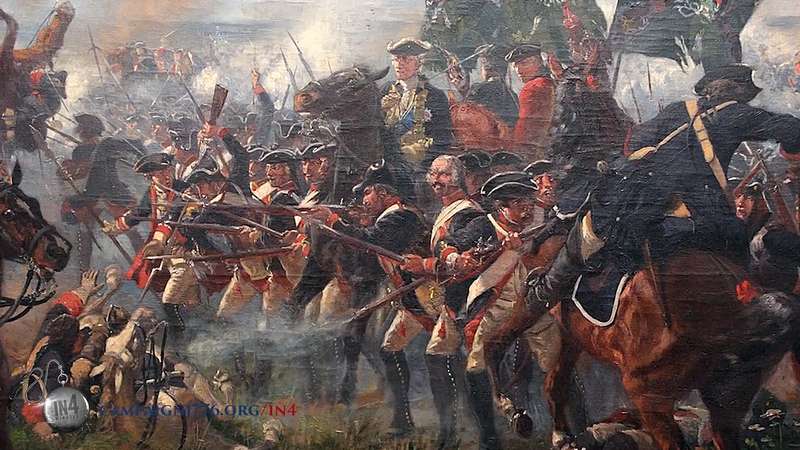About Publications Library Archives
heritagepost.org

Preserving Revolutionary & Civil War History

Preserving Revolutionary & Civil War History

Wilhelm Reichsfreiherr[1] zu Innhausen und Knyphausen (1716 – 1800) was a Hessian general during the American Revolutionary War.
In the army of Hesse-Kassel (or Hesse-Cassel), Knyphausen was a lieutenant general. With 42 years of military experience, he traveled to North America in 1776 and led Hessian troops in the Battles of White Plains, Fort Washington, Brandywine, Germantown, Springfield, and Monmouth. In 1779 and 1780, he commanded British-held New York City. When Phillip Leopold von Heister left for Germany, von Knyphausen took command of the German troops serving under Sir William Howe. Because of von Knyphausen’s seniority, ranking British officers held dormant commissions outranking him in case the British commander became disabled. Despite this, von Knyphausen was trusted by his British superiors. Sir William Howe gave him responsibility for the right flank at the Brandywine, tasked with keeping the attention of the Continental commanders on the river line at Chadds Ford, Pennsylvania. He also commanded the vanguard of the army withdrawing from Philadelphia at the time of the Battle of Monmouth. Knyphausen left the North American theater in 1782 in part because of ill health, including blindness in one eye caused by a cataract. (His wife had died in 1778.) Friedrich Wilhelm von Lossberg succeeded to command of the Hessian troops in New York.
The Regiment von Knyphausen served in the Americas from 1776 to 1783. It took part in the attack on Fort Washington and was in garrison at Trenton, New Jersey. Major von Dechow, who was in command in late 1776, warned Colonel Johann Rall to fortify the town, advice that was ignored. During the Battle of Trenton the regiment tried to escape across Assunpink Creek but was forced to surrender. Major von Dechow was mortally wounded during the battle.
In 1785, shortly after the war, General Lafayette travelled to Kassel and met Knyphausen. He wrote to General Washington that they reminisced about the war and exchanged compliments.